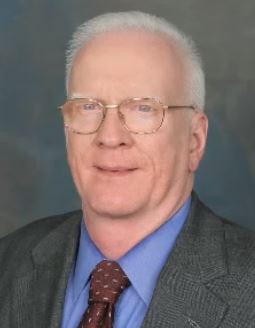By
September 5th, 2023 @ CFACT
Bowing to the unwelcome reality of the U.S. Supreme Court’s landmark Sackett v. EPA ruling, Biden administration officials at the Environmental Protection Agency (EPA) and the Army Corps of Engineers on Aug. 29 issued a final rule on their joint jurisdiction over “Waters of the United States” (WOTUS) under the Clean Water Act.
Handed down in May, the high court’s decision significantly narrowed the scope of EPA’s power to regulate bodies of water, such as wetlands and adjacent streams.
“While I am disappointed in the Supreme Court’s decision in the Sackett case, EPA and the Army have the obligation to apply this decision alongside our state coordinators, Tribes, and partners,” EPA Administrator Michael Regan said in a news release.
As a result of the Sackett decision, several types of waters will no longer be under federal jurisdiction, including an estimated 1.2 million to 4.9 million miles of ephemeral streams. Up to 63 percent of wetlands by acreage in the United States could be affected, EPA officials said.
The case revolved around an Idaho couple, the Sacketts, whose dreams of building a home on less than an acre of land near Priest Lake in the northern part of the state were thwarted by EPA. Agency officials claimed their property had a subsurface connection to the lake, which is a “navigable water” under the Clean Water Act. That, EPA said, gave them jurisdiction over the otherwise bone-dry property, and the agency ordered the couple to cease construction on their new home. That was in 2007. The case wound its way through the court system until it was finally resolved in the Sacketts’ favor by the Supreme Court.
The End of “Significant Nexus”
The centerpiece of the court’s ruling was its jettisoning of a nearly two-decade-old standard for determining federal jurisdiction over non-navigable bodies of water. It was then-Justice Anthony Kennedy who, in a decision handed down in 2006, ruled that if a wetland or similar body of water had a “significant nexus” to a navigable (or regulated) waterway, it was subject to federal jurisdiction. But what a “significant nexus” was remained a mystery. The confusion from Kennedy’s bizarre terminology helped make cases like the Sacketts possible.
Writing for five justices of the court, Justice Samuel A. Alito ruled that the Clean Water Act extends only to “those wetlands with a continuous surface connection to bodies that are ‘waters of the United States’ in their own right, so that they are ‘indistinguishable’ from those waters.”
Such clarity is a long way from “significant nexus.”
Earlier in the year, EPA released a proposed WOTUS rule that made expansive use of “significant nexus,” thereby awarding itself Godzilla-like power over tens of millions of acres of land throughout the U.S. So far-reaching was the Biden WOTUS rule that Republican-led efforts to roll it back under the Congressional Review Act passed both the House and the Senate in the spring with bipartisan support, only to be vetoed by Biden. And then came Sackett.
In the post-Sackett text of its final rule, EPA now writes:
“The exclusive purpose of the 2023 Rule was to define ‘waters of the United States’ and this rule simply conforms that definition to Sackett.”
Commenters Need Not Apply
Breaking with regulatory custom, EPA released its final rule without giving the public an opportunity to submit comments on the agency’s action. That move, together with EPA’s narrow interpretation of the Supreme Court’s decision, prompted West Virginia Sen. Shelly Moore Capito, ranking Republican on the Senate Environment and Public Works Committee, to predict EPA’s changes will “likely be rejected once again in the courts.” House Transportation and Infrastructure Committee Chairman Sam Graves, Missouri Republican, said EPA’s revised rule “barely pays lip service to the Sackett decision,” the Washington Times reported (Aug. 30).
We’re not yet done with WOTUS.
Author
No comments:
Post a Comment